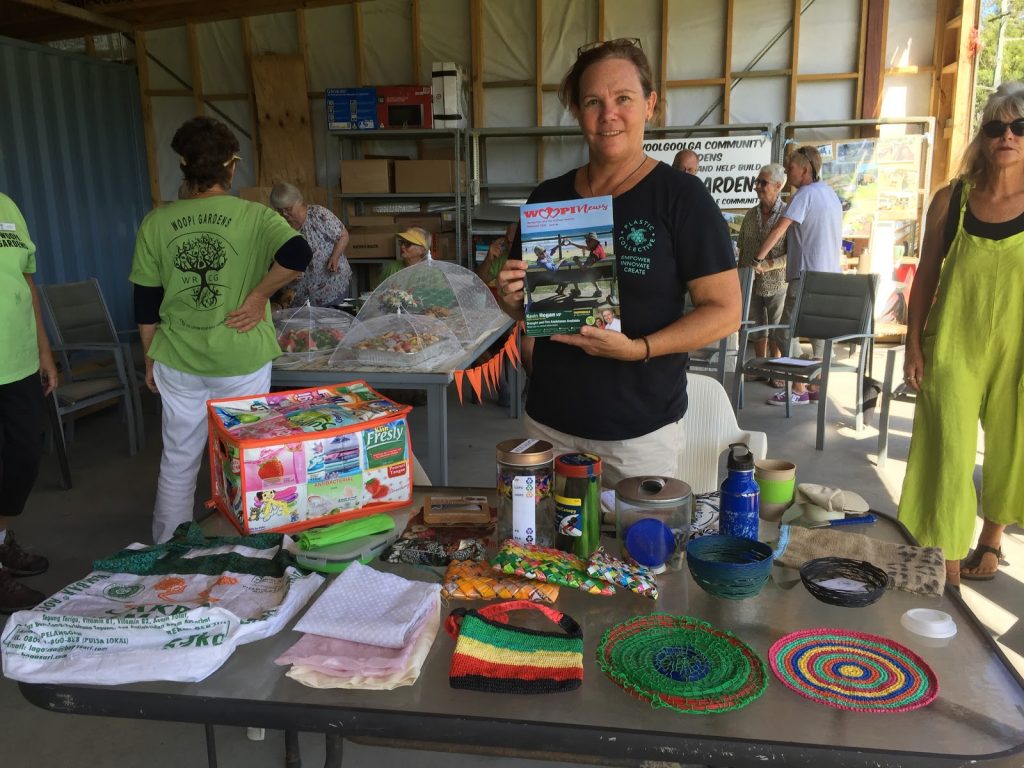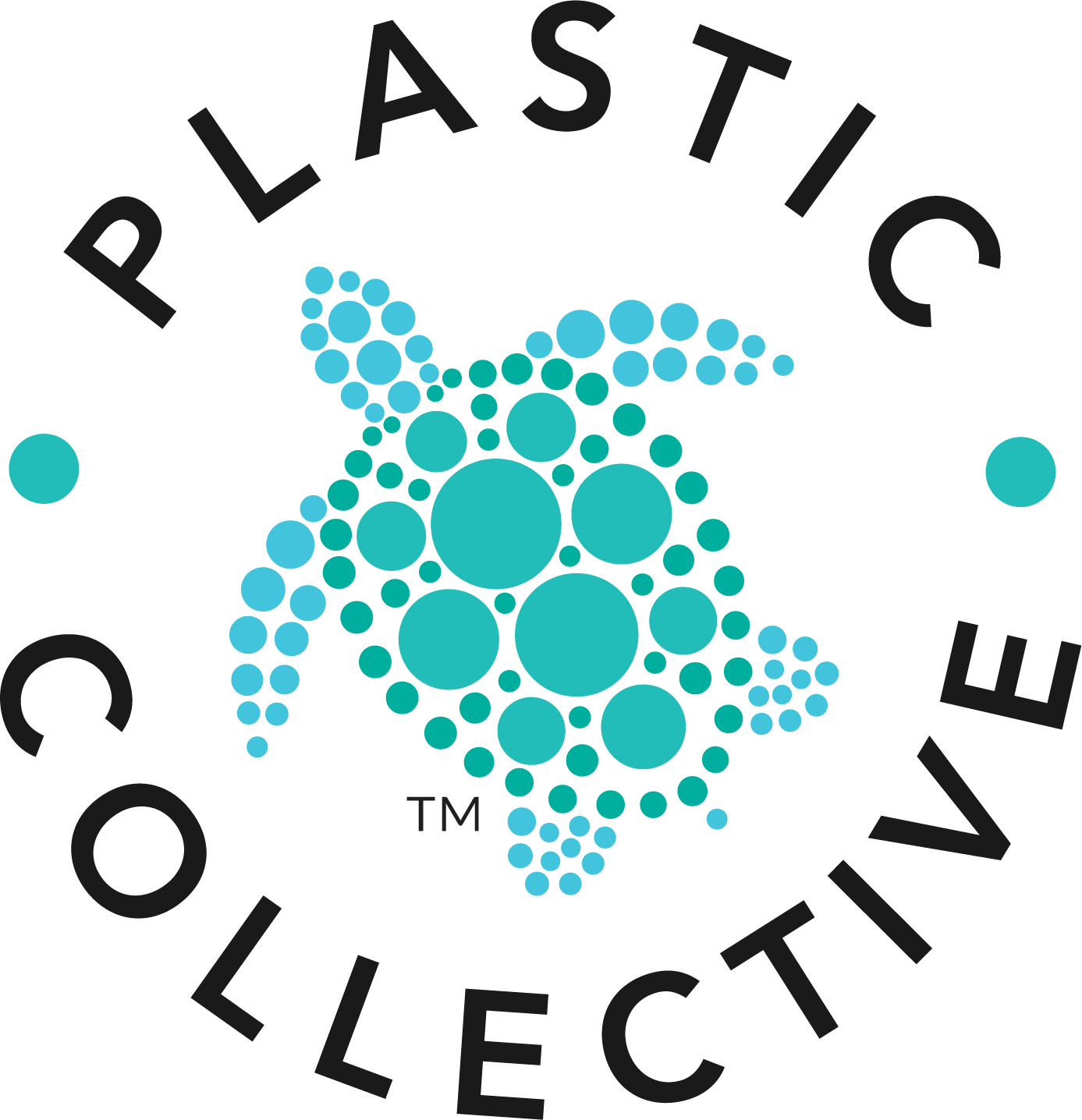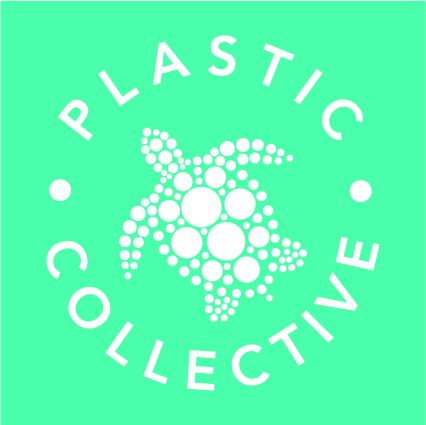Woopi Gardens & How to be a Plastic Neutral Citizen

Last weekend, I ran a Plastic Neutral workshop at Woolgoolga’s Community Gardens (aka Woopi Gardens), in my local town. The mission of Woopi Gardens is to build a sustainable garden accessible to all, encouraging community involvement, good health, well-being and environmental awareness via a shared garden for people of all ages, abilities and cultures to enjoy.
As part of their dedication to the environment and local community, Woopi Garden volunteers have put together a series of educational workshops to share knowledge and build community sustainability. The first workshop for the year, 2020 was “Plastic Neutral – Everything you need to know on how to reduce our Plastic Waste”, presented by yours truly.
As I have previously ran a number of Plastic Waste-free workshops teaching people about what plastics are, what is harmful and beneficial as well as solution to minimizing waste, I was excited to be able to share what I have learnt over the past 5 years with the wonderful crew at the gardens and visitors.
The response from the workshop was so positive, I thought I will write a summary of the day and outline main points that can help people become plastic neutral – which means no plastic is sent to landfill or will enter the environment.
There are 25 simple things that people can do to save the world from plastic pollution, these are my favourite ones.
Change your attitude that plastic is waste, and should be discarded after one use. Plastic is a versatile and long lasting resource, it is only when we throw it away it becomes pollution. Don’t blame plastic for becoming rubbish, lets focus on behaviour.
The Law of Least Effort – a guiding principle I use to empower myself in a world that can be challenging. There are 3 steps, firstly accept things as they are right now, secondly take responsibility for yourself not everyone else, thirdly – you don’t need to defend you actions. If you want to learn more about this wonderful ‘Law’, you can learn more about it in My Plastic Plan .
Now we have a positive attitude to work with, lets cover off some important fundamentals. To become Plastic Neutral, it is critical to understand that we currently have a serious over consumption of single-use plastics. In countries such as Australia, our consumption per person is between 50-80kg/ year. We really need to reduce this, and fast.
Here are some proven tips which will help you transform your home and personal consumption of single-use plastics. To get started let’s take a look at how we separate our waste, as this will give you a very clear picture of how to proceed and which areas need addressing.
The first separation is ‘wet’ and ‘dry’, or organics and non-organics. This is so important for a number of reasons. Organic material has many nutrients that are combined with plastic wrappings. It will quickly rot and create greenhouse gases, including methane and other gases. Plus it attracts wildlife, potentially harming animals searching for food which will eat the plastics, as well as bacteria and insects causing diseases, such as malaria and dengue fever.
Separating wet and dry, prevents ‘recyclables’ such as glass, plastics and metals from being contaminated allowing for easier recycling. Setting up systems for organics are well documented, composting, worm farms and black soldier fly are the most popular and effective for both farms and apartments.
Finding out what your local area can recycle is important, as this will enable you to separate your hard plastics, metal and glass in the right sections. Soft plastics are the most difficult to recycle and often have the lowest value, so we want to do two things with soft plastics – eliminate as much as possible, and recycle what can’t be eliminated through dedicated services.
Everyone can reduce their plastic consumption dramatically to help make the change we are looking for. Here are some of the things you can do right now by taking responsibility for yourself;
Reuse/ refill
- Carry a water bottle, or buy a soda stream – no need for PET bottles then
- Always have a shopping bag in your car or with you, plus a few small produce bags for fruit and veggies
- Take a lunchbox to work- full or empty, with your own cutlery (I have a spork kit)
- Buy products that have attractive containers to be used again, such as large glass jars
- Bring your own ‘meat/ cheese’ container’ to the supermarket – or butchers
- Take your keep cup for drinks
Rethink
- Simplify your life, use proven cleaning products including odor-free Vinegar and bi-carb
- ‘Nana Knows How’: Ask your Elders who lived in an era before plastics what they used
- Support and buy products made with recycled material, become part of the circular economy
- Politely ask for ‘no plastic straw’ in your drink, or ‘no plastic bags needed, thanks!
- Try ‘naked cosmetics’, package free products, such as shampoo bars, and look for refillable stations
- Support your local farmers and producers, buy local and minimise excessive packaging and global transportation costs – care for your community.
We all play a part in keeping the world healthy and pollution free, so if we can reduce our consumption of single-use plastic simply by reusing and rethinking, the world will be a much better place. If you want to learn more, we have developed a Plastic Neutral program you can join. That is the Plastic Neutral Challenge !

